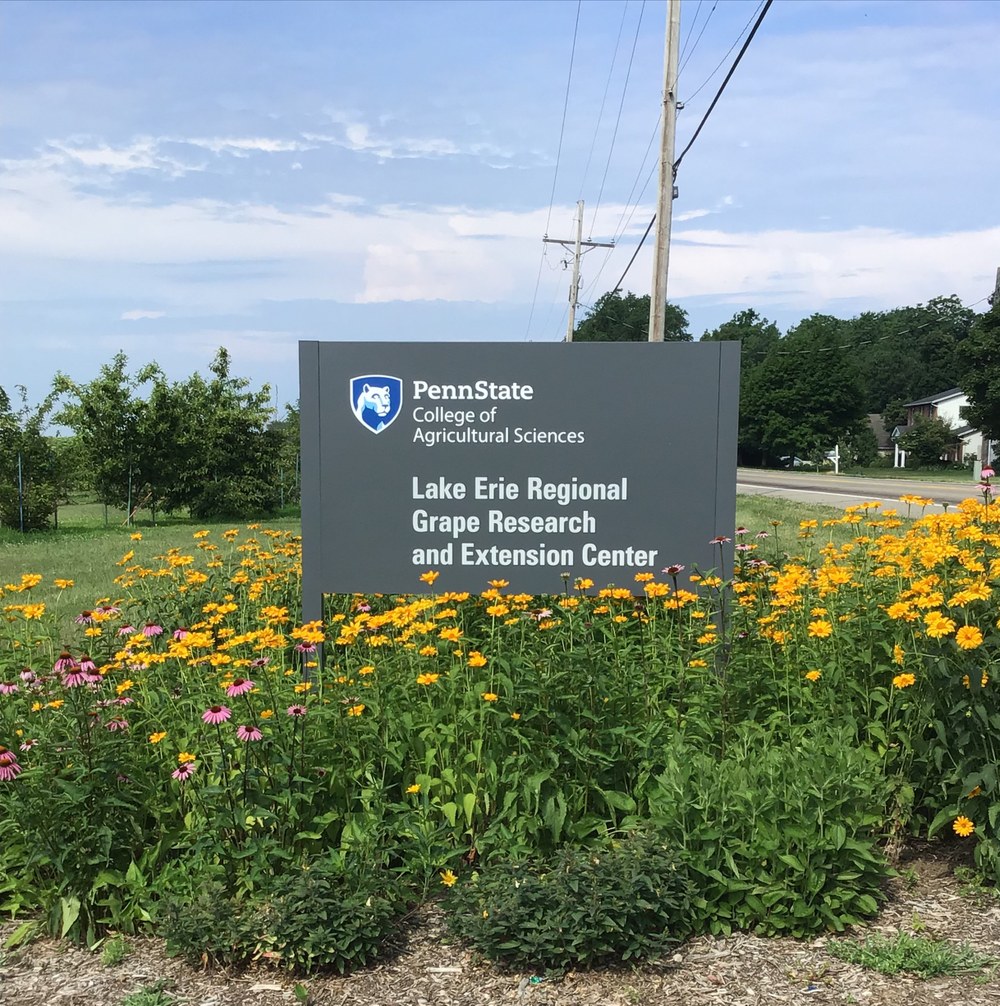
Lake Erie Regional Grape Research and Extension Center
This 40-acre facility, located about 15 miles east of Erie, serves the grape-processing industry, which has a strong presence along the Lake Erie coastline in Pennsylvania and New York. Grape growing is concentrated here because Lake Erie has a moderating effect on cold winters. The lake, warmed by summer sun, keeps the soil warmer in the fall and extends the growing season. Once cooled by the winter, the lake maintains cool springs, preventing early bud break and preventing frost damage.
There are insect and disease problems which are unique to grapes which are researched at this facility. Our research technologist on staff is plant pathologist Bryan Hed. The center director, Michael Campbell, is a plant biologist affiliated with University Park and Penn State Behrend, and who has an interest in the physiology of perennial plants.
The Center grows 23 acres of Concord grapes, the purple processing grape, and 5 acres of Niagara grapes, a white processing variety. The Center also grows a selection of wine grapes including Vignoles, Chambourcin, Riesling, Gruner Veltliner, Vidal, and Chancellor, as well as ten varieties of table grapes. Growing a diversity of grapes enables the center to conduct experiments on disease and cultural practices that help growers make informed, scientifically based, decisions.
The only non-grape crops grown at the center are hardy kiwi berry, haskaps, and hybrid American Chestnuts, which are cultivated to study how these plants fares in the Lake Erie microclimate.
Researchers work on 10-20 projects every year, most of which test vineyard disease and insect controls. Research projects range from studying new spray technologies for plant diseases and insect control to new techniques for cluster thinning and pheromone attractants. The Center also has two weather systems, one of which is hooked to the NEWA network which gives growers daily information of best timing for pesticide applications.
Profits from grape sales are used as part of the center's operating budget. Processing grapes, not affected by disease or pesticide trials, are sold to a Welch's Inc. plant in North East and the wine grapes are sold to a local winery.
The Erie facility is part of a cooperative effort between Penn State and Cornell University. Each university maintains separate facilities. Cornell operates a vineyard laboratory in Portland, New York and they cooperate on extension education programs and field days for local grape growers.

